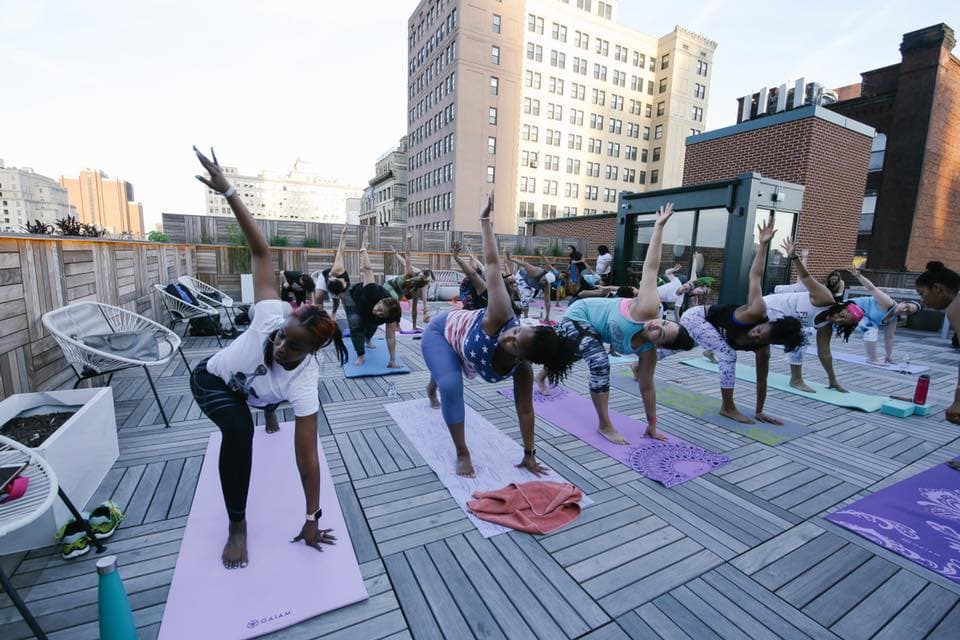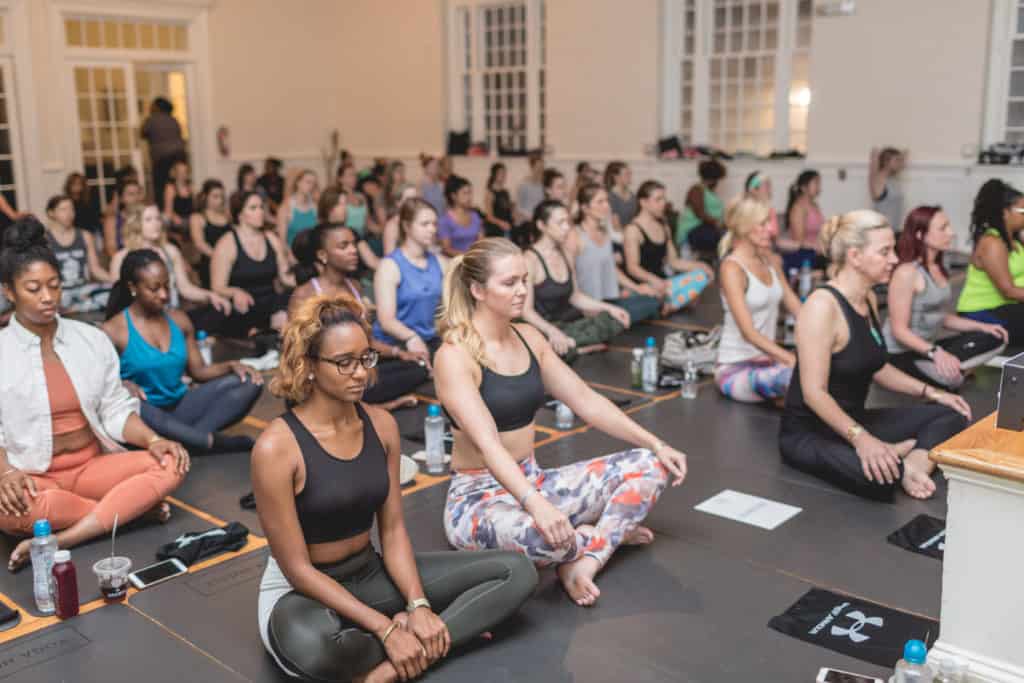So, last night you filled up the bathtub with warm water, lit some candles, threw in a bath bomb, added flowers, jumped in, grabbed your rose, and snapped a pic for the gram. Was that your major self care moment? Granted it was probably relaxing, but not all self-care practices are this glamorous. The active role you take to improve your well-being is like any other relationship – it takes work. We asked Washington DC based health policy researcher, Alex Kearly, to share 9 self-care essentials that will leave you feeling recharged, and ready to take on anything that life throws at you.
10 min Yoga For Self-Care
A quick 10 minute ‘sesh is easy to make happen during busy weeks. Adriene Mishler, an Austin, TX based yoga instructor, shares a 10 minute yoga for self-care video on her site that promotes healing for the mind body connection. Yoga provides mental, emotional, and physical healing through self-discovery and self-acceptance. Yoga encourages freedom from all suffering, freedom from doubt, and freedom from confusion. It teaches us to overcome internal and external obstacles on the mat and off the mat, in everyday life. #majorselfcarevibes

Rooftop Yoga The Positivity Charge Pop Up Events
Download The App
Great news! There are countless meditation apps available, such as, Calm, or Headspace, that offer a selection of guided meditations – designed for any situation ranging from workplace meditations, to those that target calming anxiety. Meditation is an easy and accessible way to focus your attention on self-care practices, and evoke a calming feeling from any place, at any time of day. A great resource for meditation is the book 10 Percent Happier, which is a great way to learn about all the benefits, told by the author – Dan Harris’ – personal journey of evolving from an anxiety-ridden news anchor of a major network to an enlightened and avid meditator.

Group meditation at The Positivity Charge Conference 2018.
Breathe In Self-Care, Exhale Frustration
The practice of breathing techniques is known in Sanskrit as “pranayama.” Pranayama has the ability to slow the sympathetic nervous system, which triggers our “fight or flight” response to stress, and in turn, activate our parasympathetic nervous system, or our “rest and digest” mode. Simple breathing exercise such as ujjayi (commonly used in the practice of yoga) or Nadhi Shodhana (or alternate nostril breathing) can help slow the heart rate and engage the parasympathetic nervous system, proving a calming response. Try “4-7-8 breathing” – that encourages an emphasis on the exhale.
Spend Time in Nature
It’s official – spending time in nature is good for you. Major recent studies have shown that spending time in nature has a whole host of positive health benefits. One study found that people who lived near green spaces, such as a park, or wooded area, experienced less anxiety and depression than those who lived farther away from green space. Another study found that “forest bathing” can improve heart health.

Get a Massage
The idea of getting a professional massage may seem self-indulgent to some, but massage therapy is not only a great form of self-care but also a great alternative to pain treatment. Recent studies show that massage therapy is linked to less dependence on pain-management medications. There are different types of massage therapy ranging from gentle Swedish massages commonly offered in spas, to intense deep tissue massage, to Thai massage, which involves different stretching, pulling and assisted rocking techniques and is known among some as the “lazy persons yoga.”
Cooking
Cooking your food instead of eating out has many benefits. By preparing a home-cooked meal, there is a greater connection to where food comes from. This often also means cooking a more nutritious meal with healthier ingredients and fewer preservatives or additives that come with eating out.

Going For A Walk
Sometimes just getting out of the house of the office is all that’s needed to relieve stress. Going for a quick 15-minute walk during the workday or stressful times allows us to get some fresh air and clear our minds!
Create a Morning Routine
The book My Morning Routine: How Successful People Start Every Day Inspired by Benjamin Spall, argues that how you spend your morning will have a lasting impact on the rest of your day. It claims that if you start your day with intentionally and a calm mind, you are more likely to bring this attitude to the inevitable trials and tribulations of your day-to-day.

Therapy
Therapy might be the most important type of self-care that a person can do. There are different types of therapy that can be helpful depending on what your needs are. A common type of therapy is cognitive behavioral therapy (CBT), a popular form of psychotherapy, or talk therapy, which involves learning to identify the cause of an issue and learning and practicing techniques such as relaxation, coping, resilience, stress management, and assertiveness. Other types of therapy and counseling include interpersonal therapy, group therapy, neurofeedback, and other types of talk therapy. There are different mobile apps that can be used to do therapy such as Talkspace and BetterHelp.
About The Author
Alex Kearly, Rooted Wellness DC
Alex Kearly Passionate about research and all things wellness, Alex Kearly splits her time between health policy research at her 9-5 and blogging. Alex has a thirst for knowledge (and smoothies!). Alex believes in the power of yoga and uses her platform to share her wellness to finding calm and living a mindful life.